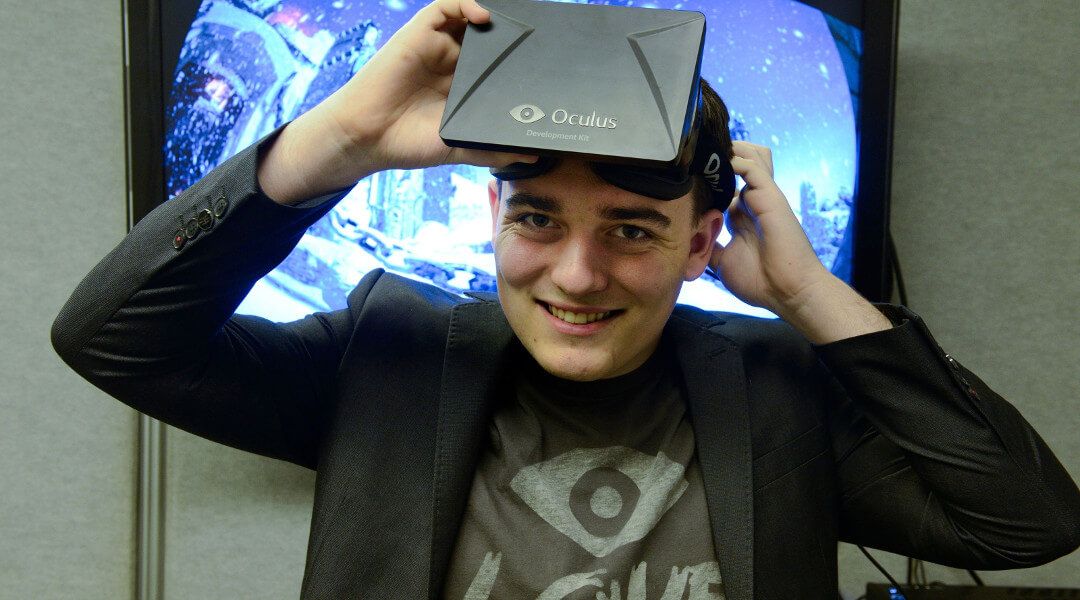Oculus founder Palmer Luckey spoke at length on Twitter regarding realistic expectations for the Oculus Rift headset and how heavily the price will be subsidized.
Speculation regarding pricing for the Oculus Rift continues to run rampant, as an announcement grows more and more likely for January. Yet while Oculus may be keeping the exact price under lock and key, that isn't stopping founder Palmer Luckey from working to manage consumer expectations with regards to cost. A series of posts on Twitter and Reddit had Luckey reiterating one simple idea in a variety of ways: the consume release of the Oculus Rift is going to be expensive.
Luckey framed the entire series of posts with the idea that Oculus, as well as their VR competitors, are bending over backwards to make this first generation of headsets as affordable as possible. If just one of his tweets encompassed that thought, it would be this one:
[HTML1]
With "Facebook resources" Luckey made clear that Oculus isn't such a company and that the Rift won't be near that expensive. Oculus and competitors will be subsidizing a huge amount of costs in order to get their headsets in the hands of VR enthusiasts. He even goes so far as stating that the Oculus Rift will be, "insanely cheap considering complexity." It's up to consumers to speculate what "insanely cheap" means when it's clear the true costs of a headset can reach as high as $1000.
It's the nature of consumers to argue over price points. Every consumer has a price in their mind for what they'd be willing to spend on an Oculus Rift, and if Oculus doesn't hit that mark then the consumer will consider that a problem. The higher the price, the more consumers will be unhappy. And at this stage of its life, what could be VR's greatest threat is online discourse turning against it. Now factor in production limitations that will almost certainly not meet demand no matter the price and Luckey has his work cut out for him.
All said factors must be considered while knowing that every dollar that Oculus drops the price of the Rift will be coming directly from the company coffers. Oculus not only respects that, but embraces it:
"I specifically said that even selling at cost is not enough to make VR as affordable as everyone wants - people who think we are going to come out ahead on hardware don't understand that our goal is to make the VR market as large as possible so developers (and Oculus) have a large enough addressable market to make VR content financially viable and self-sustaining."
Does any of what Luckey has said online in the past few weeks get us any closer to a price point for the Oculus Rift? It's less than $1000, which Luckey described as turning a profit. $700-900 might be closer to at-cost, but Luckey made clear that they'll be subsidizing a good chunk of the price. He even went so far as to say it'll be "insanely cheap" when considering its at-cost price. And he's also stood by the quote that an Oculus Rift and a PC that can run it properly will be at least $1500.
That leaves consumers with a price range likely falling anywhere between $300-700, with the low and high of that being beyond anyone's expectation. $500 is perhaps the most realistic goalpost, but with HTC Vive delaying their headset Oculus is now the front runner. They could absolutely get away with a $600-700 price and still struggle to meet demand for a very long time. But that wouldn't necessarily be best for making VR the revolution that Oculus would love for it to be.
What is the correct price for the Oculus Rift? Will it even matter? Any number of other issues could end up defining this first year of our lord VR, 2016 -- availability, software, ease of development, competition between headsets and so on. It's all very exciting and terrifying. Aren't video games great?

